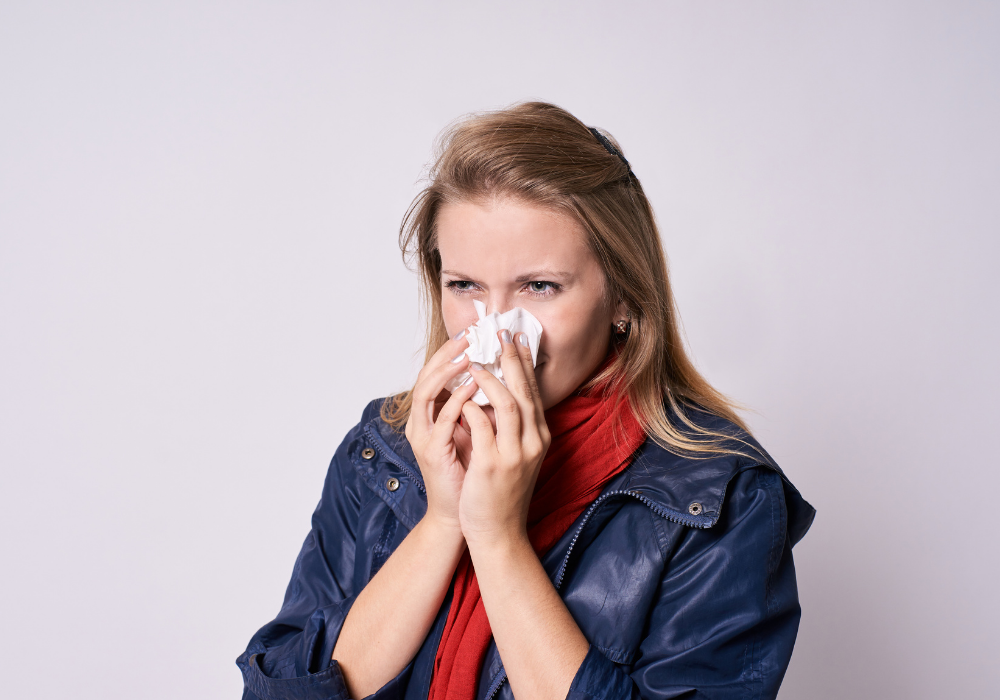What Does It Mean When Your Nose Itches? What is the origin of this superstition, and what is the history behind it? A tickle in the nose can be highly irritating. Typically, the tickling sensation in your nose lasts only a few seconds before you sneeze. Sneezing, on the other hand, does not always solve the problem. Tickling in the nose can be caused by various factors.
It might be a disease, an allergy, dryness, or irritation. Like other sensations in the body, an itchy nose gets said to have spiritual connotations, superstitions, or omens. It’s likely in more than 100 million people all across the planet. What causes the itching in our noses?
Nose Itchiness
If a person thinks about his nose at all, he probably thinks of it as a simple smelling organ. Of course, the nose is responsible for the sense of smell. Still, aroma refers to much more than the capacity to appreciate pleasant odors. Because scent contributes significantly to flavor, it is vital in maintaining proper nutrition. The smell may also alert us to hazards such as poisonous gases and smoldering fires, as well as rotten food.
What Does It Mean When Your Nose Itches – Spiritually
The superstition surrounding an itchy nose began long ago when people did not trust scientific truths and were unaware of them. It gets claimed that an itchy nose has spiritual importance since it exposes what is happening in a person’s life. The itching nose is symbolically associated with symbols such as good luck, love, and unforeseen events.
There are over 100 superstitions associated with your itching nose. The majority of them concentrate on communication skills and interpersonal connections in life. The most common is that having an itchy nose signifies you’re about to have a conflict or an argument with someone.
Itchy noses have a scientific explanation. Nonetheless, some people prefer superstitions to alternative explanations. You can understand the superstition around an itchy nose at times.

What Does It Mean When Your Nose Itches – Scientifically
Aside from superstitions, science supports the following statement: What Does It Mean When Your Nose Itches? An itchy nose can get caused by various factors, including allergies, infections, or dry skin. While most itchy noses only last a few seconds and are usually alleviated by a sneeze, others may linger longer owing to a more severe issue. Following are some causes
Viruses
Colds are most prevalent in the winter and spring, but they can occur at any time of year. In reality, the average adult gets two or three colds every year, and children get much more.
Allergies
Allergies develop when your body’s immune system reacts to anything in your surroundings. When you are allergic to anything, your body misidentifies it as a foreign invader, such as the flu virus. It might make you feel like you have a cold. Many people are sensitive to allergens such as pet dander, pollen, and dust mites found indoors and outdoors.
Seasonal allergies are most prevalent in children, although they can occur at any age, especially in individuals with a family history of allergies. Suppose you have a genetic history of allergies or moving to a different geographical region. In that case, it might be the reason for your allergies. Adult-onset seasonal allergies are more common in those who have asthma.
Dry nose
Aside from warning you of potential health problems, an itchy nose might indicate that your skin is dry, either inside or the exterior. It can be unpleasant, annoying, and painful when your nasal passages get dry. Excessive nose blowing is a common cause of dry nose. When the heat gets switched on in the winter, a dry nose is standard.
Chronic Rhinitis
Pollen in the air is the most common cause of seasonal allergic rhinitis. An itchy, runny nose, sneezing, and irritating ears, eyes, and throat are all symptoms of chronic rhinitis and postnasal drip.
Perennial allergic rhinitis is little more than chronic rhinitis that affects people throughout the year. Indoor allergens like dust, animal dander, and pollens, which could be present at the time, are usually to blame. The sort of rhinitis issue influences the therapy of chronic rhinitis and postnasal drip.
Treatment for an itchy nose
Knowing What Does It Mean When Your Nose Itches doesn’t make a difference, You need to cure your nasal tickle at home in a variety of ways, including:
- If you have an allergic reaction to an allergen or irritants like smoke or perfume, attempt to avoid it
- Make sure you get enough rest. There’s not much you can do if you have a cold or the flu except wait it out and get as much rest as you can.
- Stay hydrated by drinking lots of water. Drinking fluids like water and tea help you hydrated as your body battles an illness or virus when you’re unwell.
- Take some anti-inflammatories. If your doctor thinks it’s okay, you can use over-the-counter cold medication or decongestant.
Tip: Think about using dietary supplements. Honey, butterbur, grapeseed extract, and omega-3 fatty acids got studied for their potential advantages in treating nasal issues.
When To See Your Doctor for an itchy nose
Tickling in the nose is an uncommon symptom of severe disease. Many factors can cause a tickling feeling in your nose. The majority of problems may get addressed with simple home remedies and time. However, if your symptoms persist, you should see a doctor.
Final Thought
Although there isn’t enough scientific evidence to justify the superstitions that have persisted in society for hundreds of years, we can’t claim they are bad things. But rather than believing in superstition, we advise you to go after scientific reasons such as allergies and cold. If you have an itchy nose but do not feel it is due to a cold or allergies, you should see your doctor. We hope you find this article helpful.
More on LittleMedi.com: Why does my nose run when I eat? Read here.